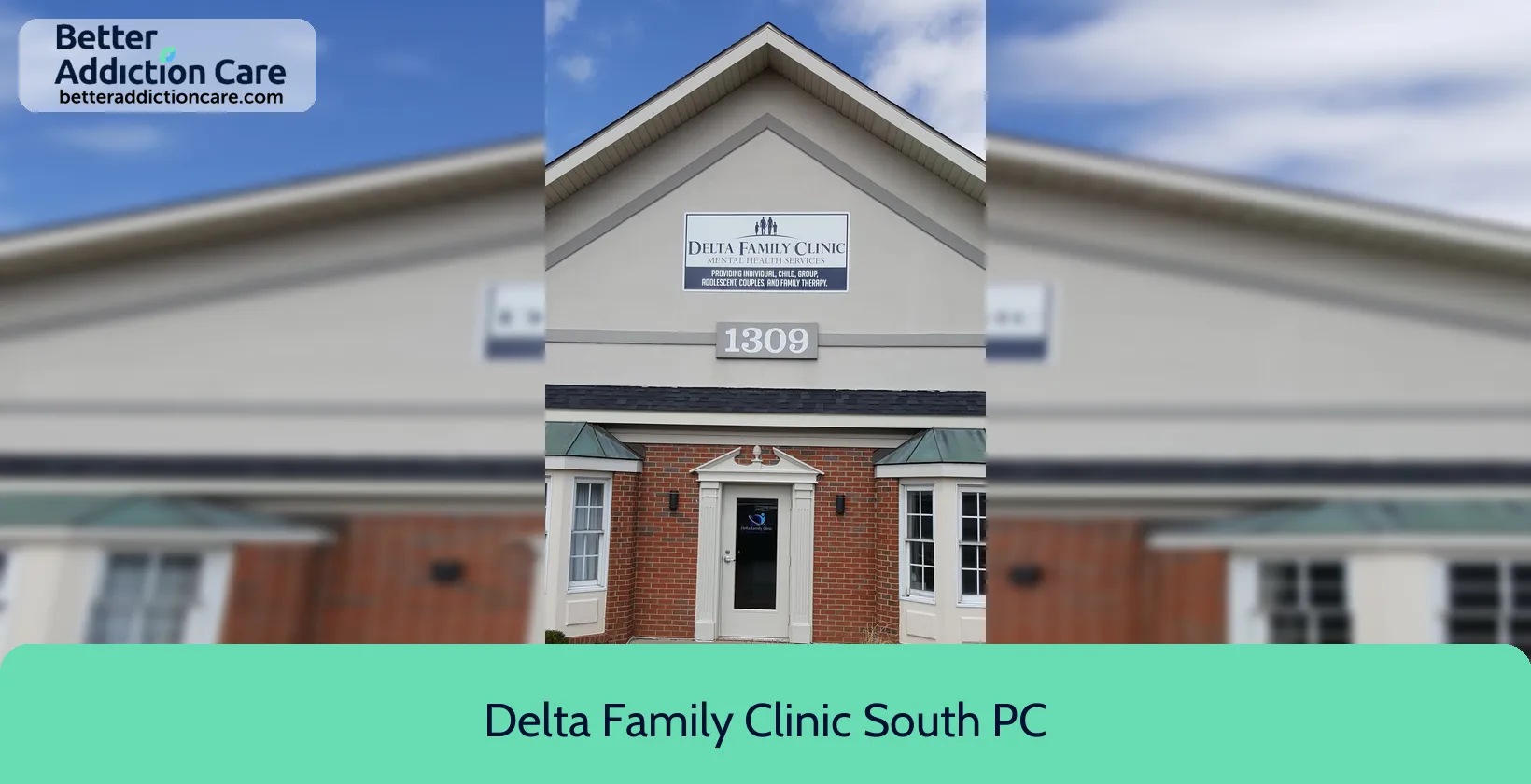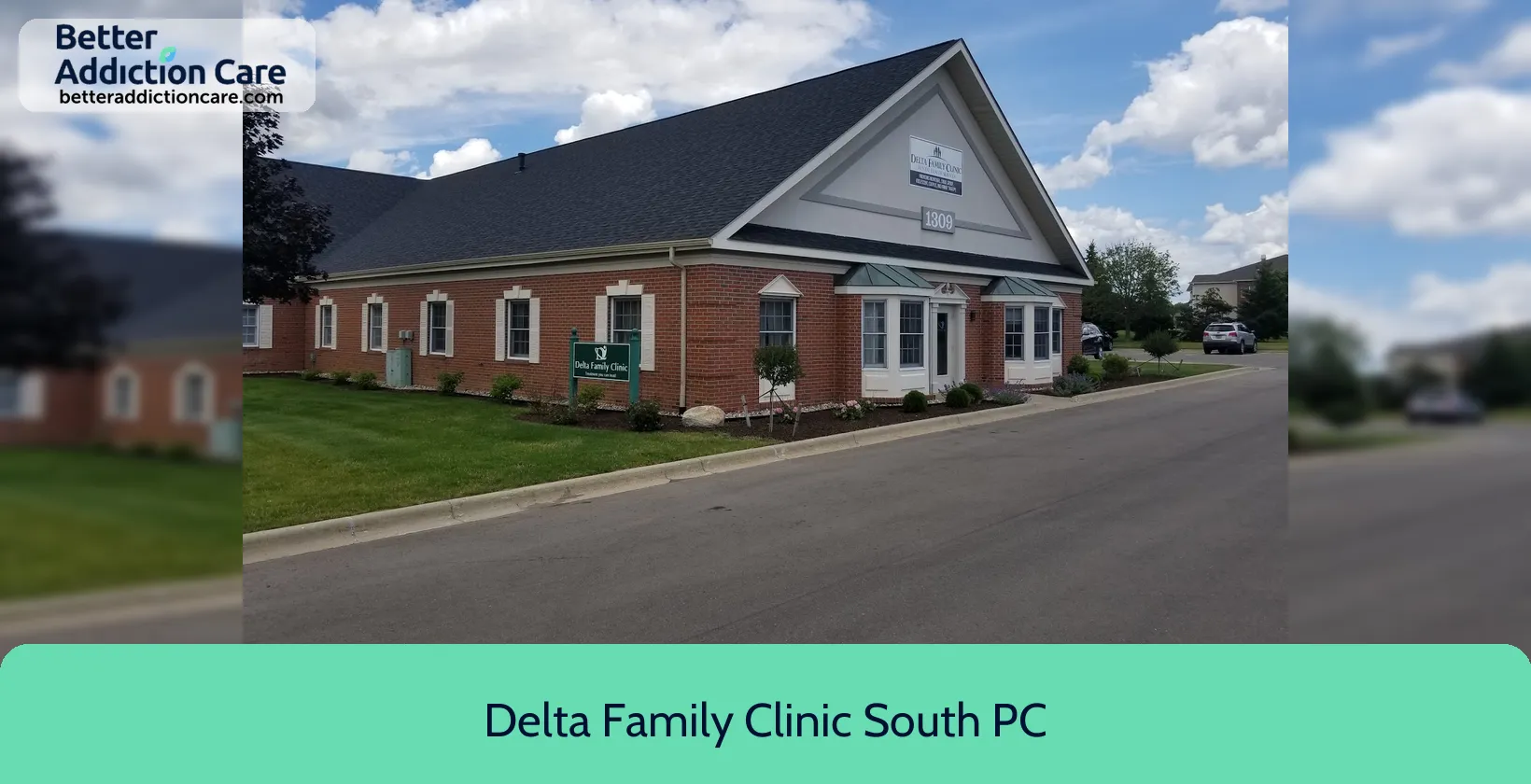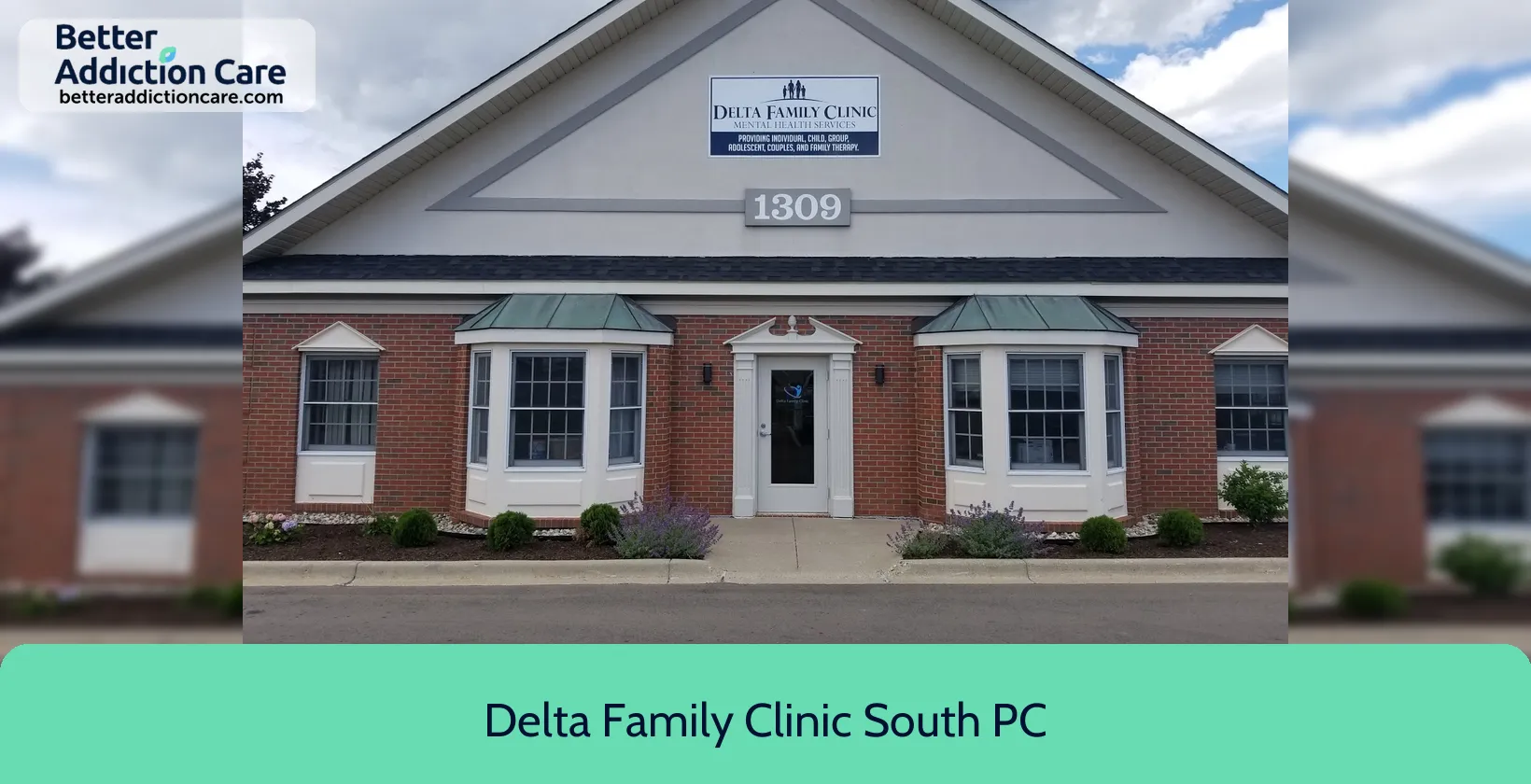Overview
Delta Family Clinic South PC is a mental health treatment center for people seeking treatment near Genesee County. As part of their treatment modalities for recovery, Delta Family Clinic South PC provides family counseling, individual psychotherapy, and dialectical behavior therapy during treatment. Delta Family Clinic South PC is located in Flint, Michigan, accepting medicaid for treatment.
Delta Family Clinic South PC at a Glance
Payment Options
- Medicaid
- Private health insurance
- Cash or self-payment
- U.S. Department of VA funds
- Medicare
Assessments
- Comprehensive mental health assessment
- Comprehensive substance use assessment
- Screening for tobacco use
Age Groups
- Adults
- Children/adolescents
- Young adults
- Seniors
Operation
- Private for-profit organization
Highlights About Delta Family Clinic South PC
6.81/10
With an overall rating of 6.81/10, this facility has following balanced range of services. Alcohol Rehabilitation: 8.04/10, Drug Rehab and Detox: 6.00/10, Insurance and Payments: 6.00/10, Treatment Options: 7.21/10.-
Alcohol Rehabilitation 8.04
-
Treatment Options 7.21
-
Drug Rehab and Detox 6.00
-
Insurance and Payments 6.00
Treatment At Delta Family Clinic South PC
Treatment Conditions
- Mental health treatment
- Substance use treatment
- Co-occurring Disorders
Care Levels
- Outpatient
Treatment Modalities
- Family counseling
- Individual psychotherapy
- Dialectical Behavior Therapy
- Group counseling
- Experiential Therapy
Ancillary Services
Languages
- Sign language services for the deaf and hard of hearing
Special Programs
- Clients who have experienced trauma
Contact Information
Read our Most Recent Article About Drug Addiction
DISCLAIMER: The facility name, logo and brand are the property and registered trademarks of Delta Family Clinic South PC, and are being used for identification and informational purposes only. Use of these names, logos and brands shall not imply endorsement. BetterAddictionCare.com is not affiliated with or sponsored by Delta Family Clinic South PC.











